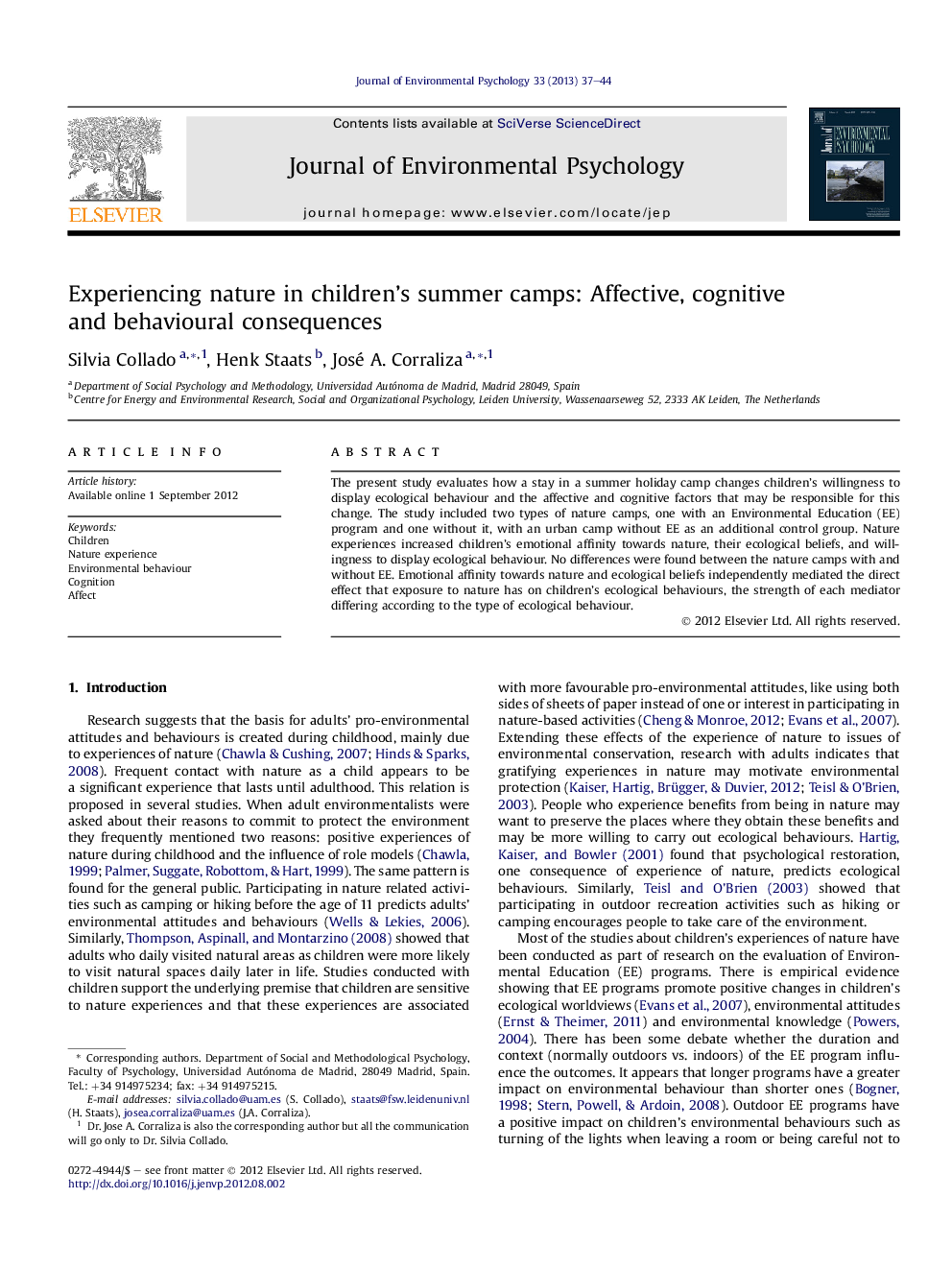| Article ID | Journal | Published Year | Pages | File Type |
|---|---|---|---|---|
| 885699 | Journal of Environmental Psychology | 2013 | 8 Pages |
The present study evaluates how a stay in a summer holiday camp changes children's willingness to display ecological behaviour and the affective and cognitive factors that may be responsible for this change. The study included two types of nature camps, one with an Environmental Education (EE) program and one without it, with an urban camp without EE as an additional control group. Nature experiences increased children's emotional affinity towards nature, their ecological beliefs, and willingness to display ecological behaviour. No differences were found between the nature camps with and without EE. Emotional affinity towards nature and ecological beliefs independently mediated the direct effect that exposure to nature has on children's ecological behaviours, the strength of each mediator differing according to the type of ecological behaviour.
► The effect of children's experience of nature through a summer camp was tested. ► Children's Emotional Affinity towards Nature increased after staying in nature camps. ► Children's Ecological Beliefs improved after staying in nature camps. ► Both these emotional and cognitive changes in environmental attitude mediate the relation between type of camp and improved pro-environmental intentions.
